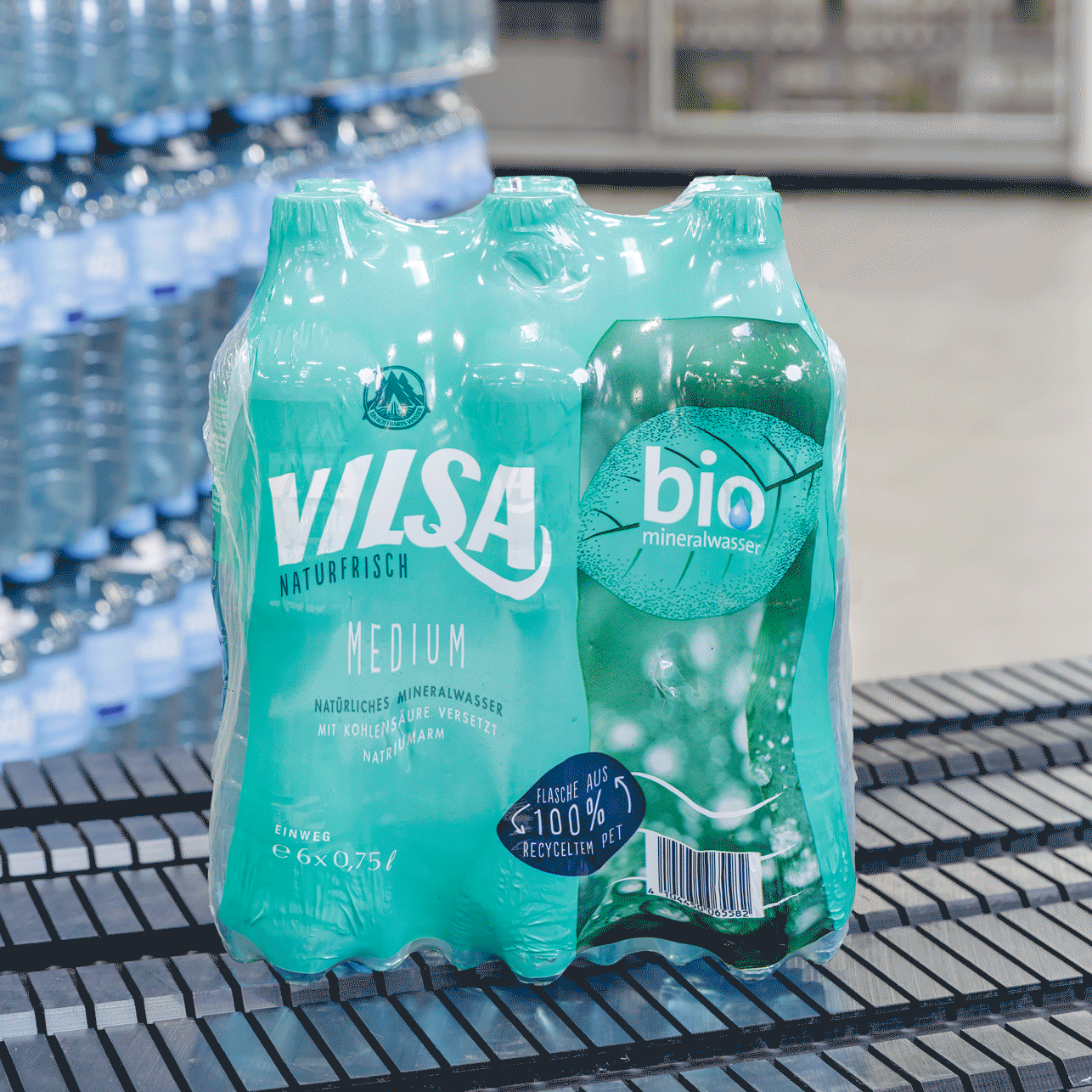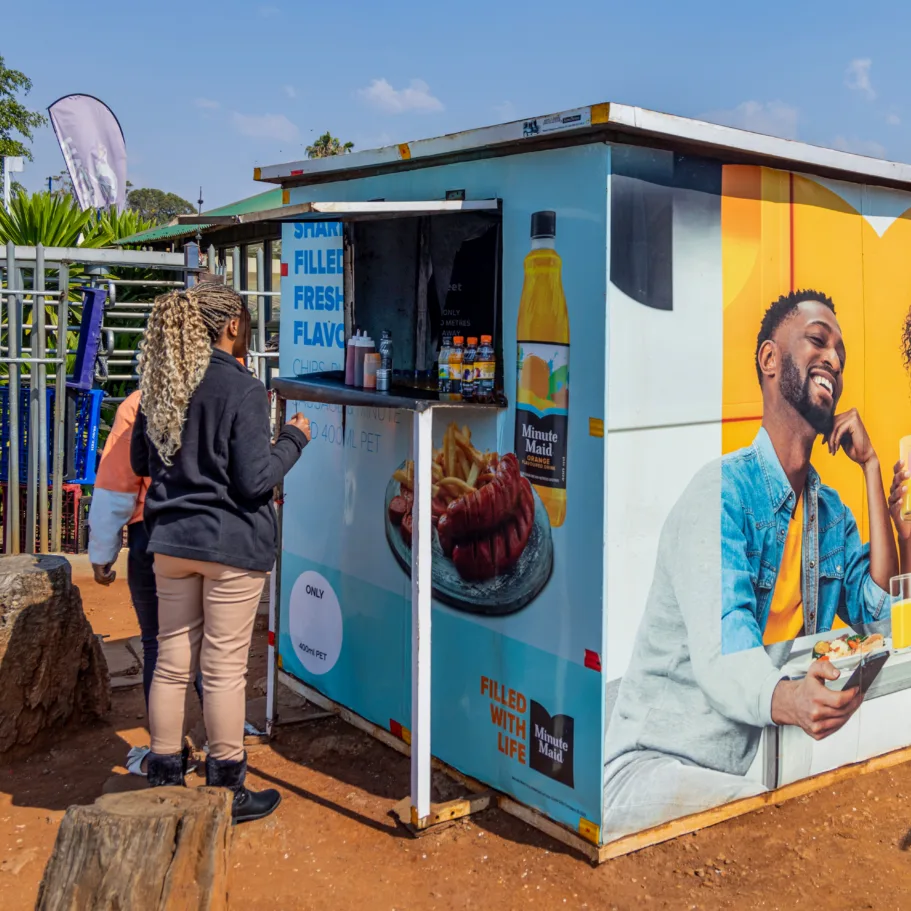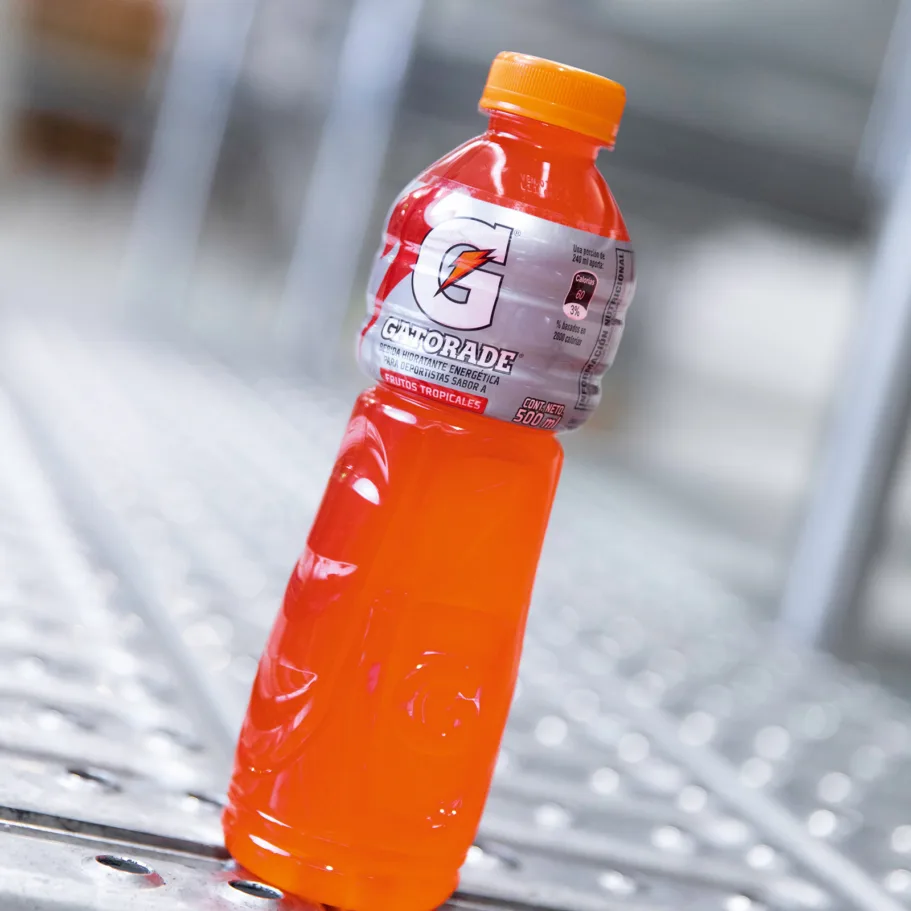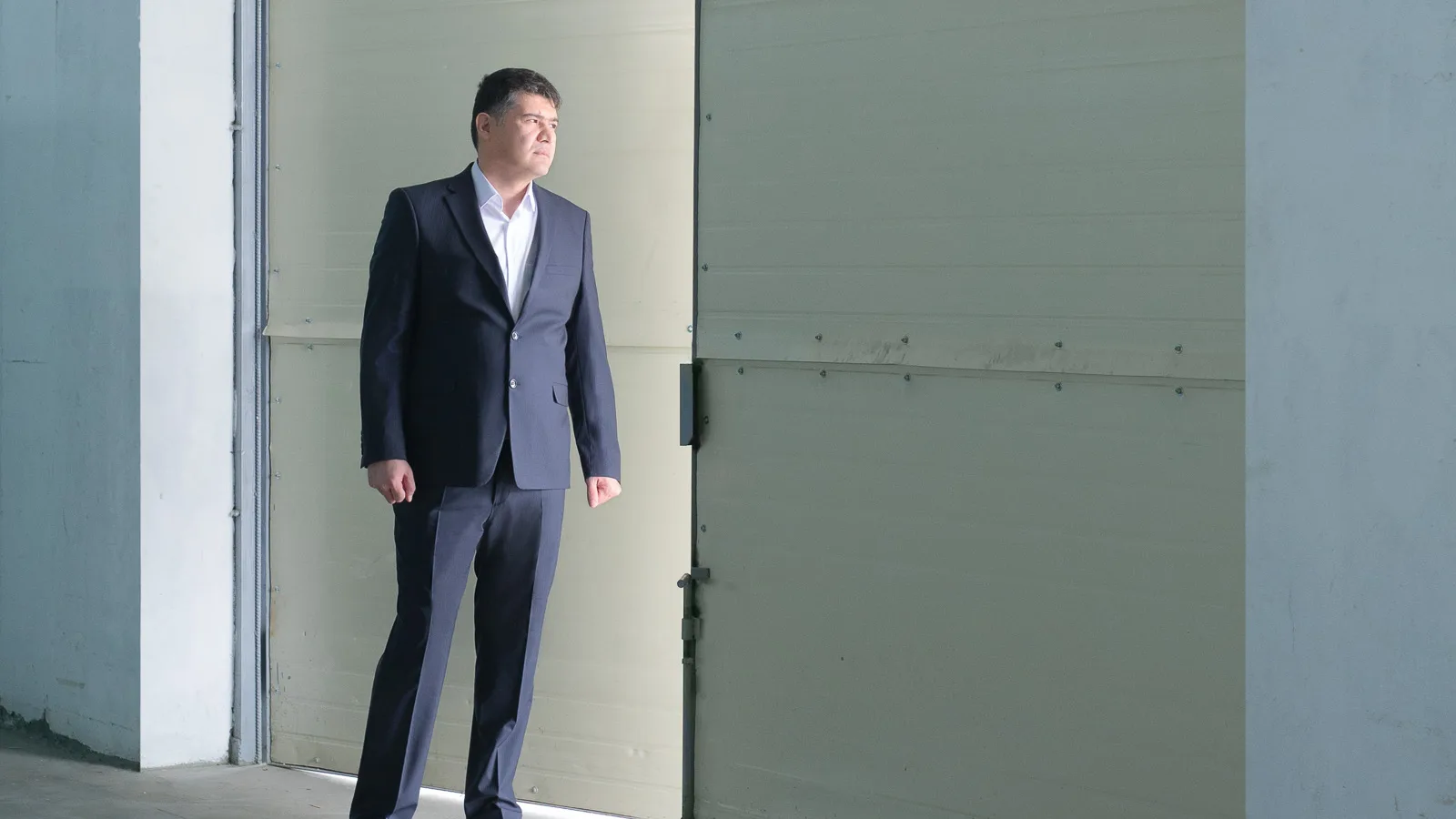
Strong start
The Butsifal Group has established itself on the water market in the Central Asian republic with impressive growth rates. / During its recent necessary capacity expansion the company laid the foundation for a promising business relationship – with Dortmund systems supplier KHS.
Following the collapse of the Soviet Union the investments already then desperately needed in the local drinking water supply infrastructure failed to materialize. Where until fairly recently people still drew water from public wells and fountains, tap water can now no longer be drunk with a clear conscience and without being filtered. Government circles have started to rethink, again focusing their attention on the population’s drinking water supply. However, the consumers in the Central Asian republic have long changed their behavior to cope with the current situation and are increasingly drinking water out of the bottle. Since 2010 the sale of bottled water has practically doubled and is forecast to rise to over four million hectoliters by 2020. Thanks to the many mineral springs in Uzbekistan local bottlers in particular are profiting from the rapid growth of the market.
One of these is the Butsifal Group, founded near the Uzbek capital of Tashkent as recently as in 2009, which has even enjoyed a disproportionate share of this boom. Butsifal sells its mineral water under the brand name of Sayhun, a reference to the old word for the longest river in Central Asia, the Syr Darya. Thanks to its balanced mineral composition and low sodium content it’s becoming ever more popular. From about one million liters in 2010, within just five years the production quantity has already increased forty times over.
It’s all too easy to imagine how this young company quickly reached its limits in the face of such enormous growth. The capacity of the two lines procured from Chinese manufacturers was no longer sufficient. The low level of automation hindered process efficiency and time and again longer downtimes compromised filling. It soon became clear that both the company’s infrastructure and processes were in need of a thorough renewal. With its objectives set for the long term, the Butsifal Group decided to work together with Dortmund systems supplier KHS and thus also opt for sustainable filling technology. The new line went into operation after a comparatively short planning and production phase.
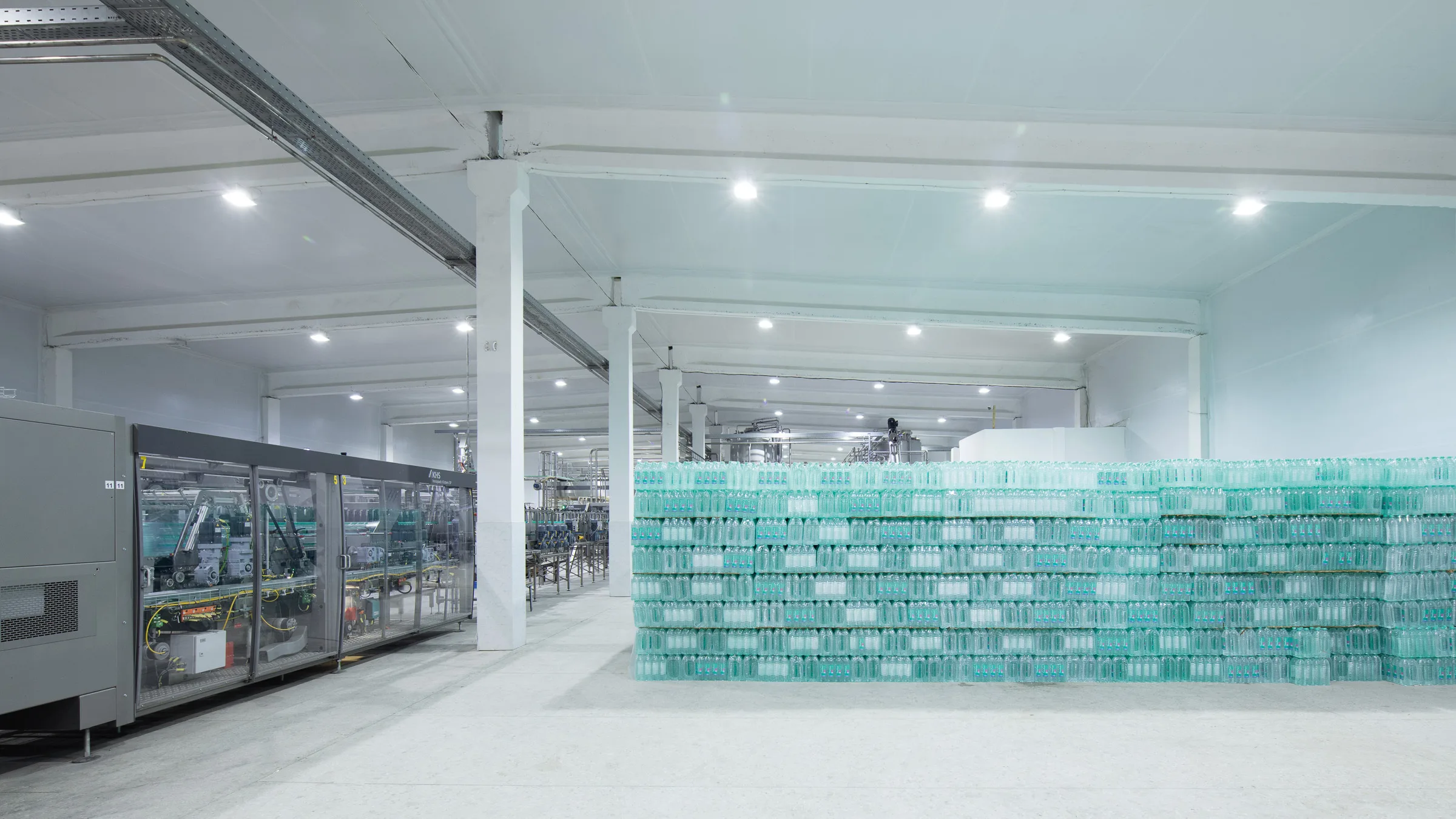
The Butsifal Group’s production facilities in Gazalkent in Uzbekistan, with some areas newly built, are light, open and friendly, providing a fitting setting for KHS’ high-performance packaging technology, for instance.
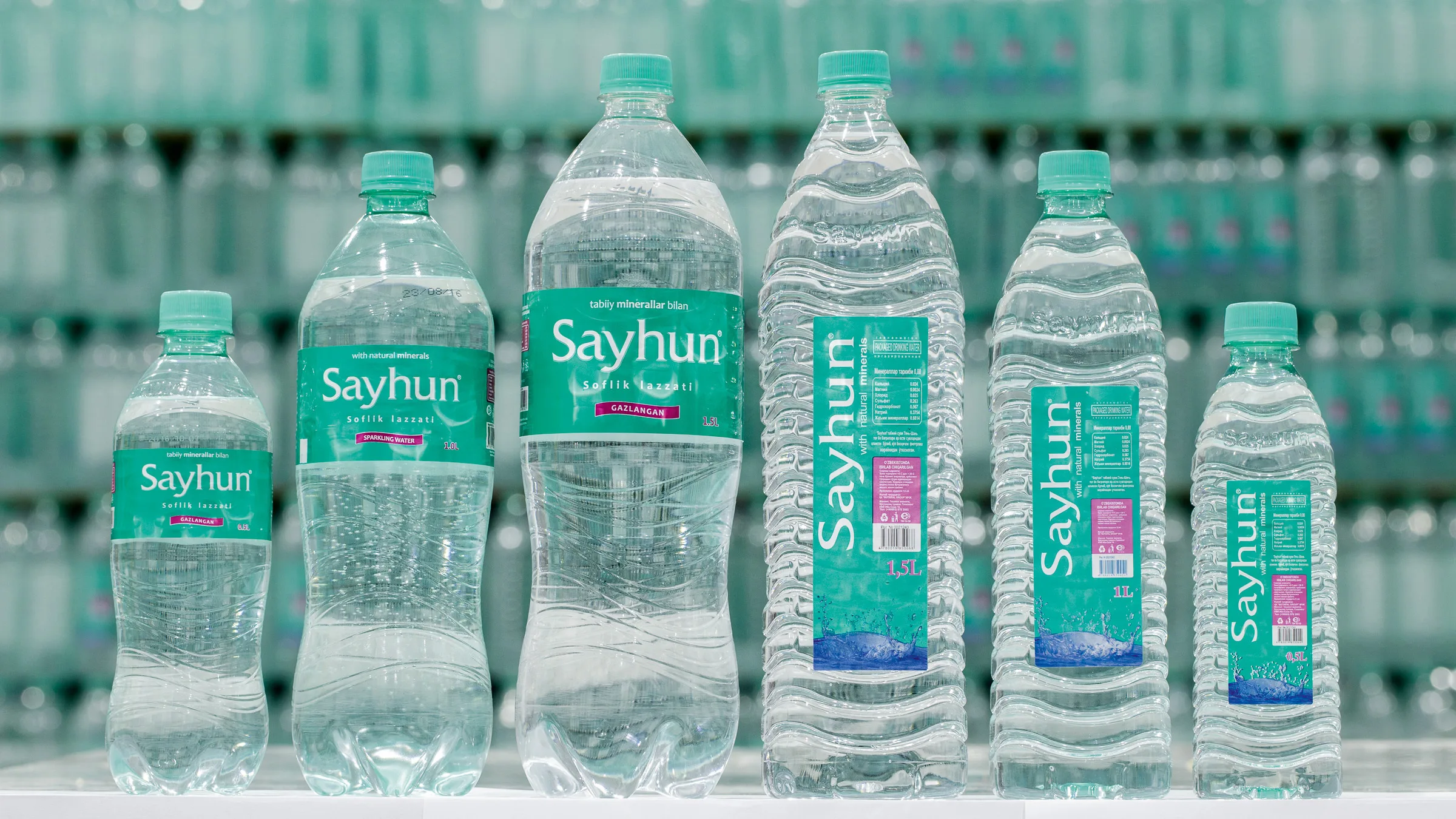
Enjoying growing popularity among Uzbeks: the natural and award-winning Sayhun mineral water.
Five facts: Butsifal Group
When? Founded in 2009 in Gazalkent, Uzbekistan, near the capital of Tashkent
What? Mineral water, CSDs and iced tea
In which containers? PET bottles containing 0.5 to 1.5 liters and other containers holding up to 18.9 liters
To which regions? Uzbekistan; also export agreements with business partners in bordering countries
Tempo upped
“Thanks to KHS technology we’ve strengthened our position on the market and further improved on it,” says Abdumalik Khalilov, director of the Butsifal Group. He’s happy that thanks to shorter production and delivery times he can now offer fast responses to requests he couldn’t satisfy in the past. This is thanks to the high performance of the line which can now fill up to 26,400 bottles per hour – over six times as many as on the line’s predecessors.
In order to adapt its production site to meet the demands of modern, high-performance filling and packaging the Butsifal Group converted and expanded its site. Taking the prevalent local conditions into account KHS then came up with the optimum line design. In conjunction with Butsifal’s extended portfolio, which today includes not only mineral water but also carbonated soft drinks and iced teas, the special challenge lay in being able to fill both square and round PET bottles on one line.
“With KHS we see a promising, far-reaching partnership for the future.”
Butsifal boss
As there are nine products in 0.5-, 1.0- and 1.5-liter formats destined for processing on the line, the issue of format changeover demands particular attention. It’s thus good that the new line enables product which uses the same bottle shape and format to be switched over in just five minutes. Thanks to a reduction in the number of change parts on the line the Butsifal Group can change over from round bottle formats to rectangular ones in just 15 minutes. This is possible with the help of an intelligent system control which automatically realigns the stretch blow molder, filler and shrink packer with one another following a format changeover.
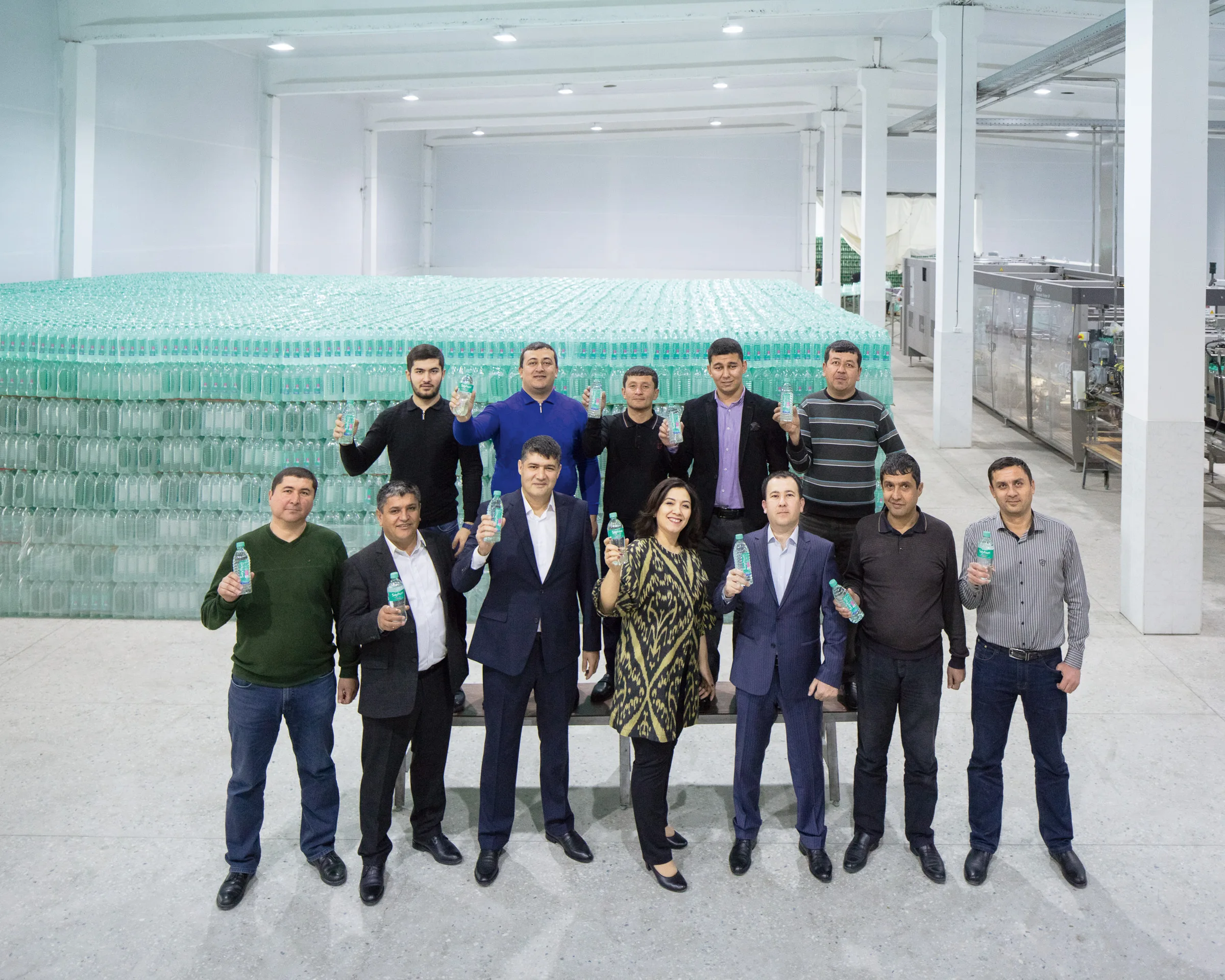
Abdumalik Khalilov, director of the Butsifal Group (3rd from the left) and Dilfusa Tadjibaeva, sales manager for Uzbekistan at KHS (4th from the left), and the rest of the team look forward to a promising, long-term cooperation.
Simpler operation
The recipes for the various beverages are easily selected by the operator on the touchscreen. The components are then dosed and prepared in the syrup room, which consists of a sugar dissolver, mixing tanks, a Batchmix unit and a filtration system, before they are mixed in the blender and sent to the filler as a finished product. Finally, the labeling machine was adapted by KHS to the customer’s specifications through the use of special servodrives to also permit wrap-around labeling of Butsifal’s square bottles.
“Thanks to the automation of our filling processes it’s a lot easier for our engineers to operate the line,” says Khalilov. “This cuts down on the number of operating errors and boosts process quality.” As a result a vast amount of time is saved during filling, resources are used sustainably and much less media and energy are consumed. This permits the filling costs per bottle to be lowered by about 40%.
Parallel to the commissioning of its new KHS line the Butsifal Group decided to expand its product portfolio and turn its attention to the low price range. The company was supported in this endeavor by the PET experts from the Bottles & Shapes program at KHS in Hamburg. They helped to optimize Butsifal’s existing rectangular PET bottles and to develop the new bottle design. Development centered on both lightweighting and handling rigidity. “The great expertise of KHS’ Bottles & Shapes specialists enabled us to come up with the required high-quality design very quickly,” emphasizes Khalilov. This is astonishingly quick as the results are real lightweights, with the 0.5-liter bottle weighing just 12.1 grams, the 1.0-liter bottle only 21 grams and the 1.5-liter bottle notching up a mere 25 grams on the scales.
All told, Khalilov is extremely satisfied with his cooperation with KHS and the results. “The new line technology enables us to produce a wide range of high-quality beverages.” And this is already having an impact: the Butsifal Group in Uzbekistan can now claim a market share of about 10%. At the same time international expansion is also being promoted following the extension of its production capacities, with a number of export agreements now signed with business partners in neighboring states. It’s thus no surprise to learn that the company has decided to continue to build up its production – with KHS as its number one partner. “Our first joint project creates the foundation for a strategic, long-term cooperation. We see a promising, far-reaching partnership for the future,” stresses Khalilov.
Butsifal’s appreciation of its German partner is also clearly visible to its end consumers, with the Butsifal Group proudly advertising the KHS logo on some of its bottle labels. This is probably pleasing to one customer of the up-and-coming beverage producer in particular: for many years the German Embassy in Tashkent has been one of the most loyal customers of Sayhun.
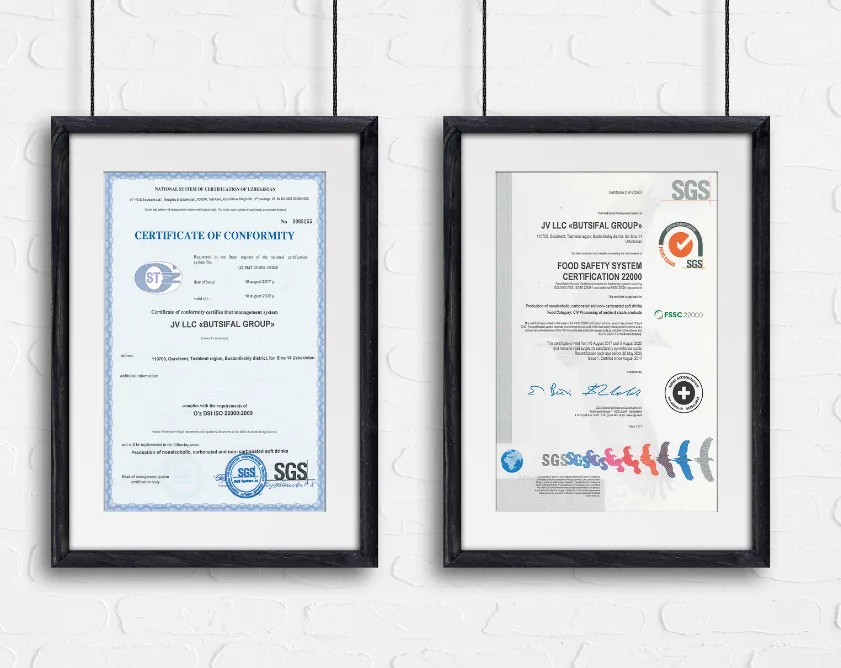
The Butsifal Group attaches great importance to high standards of quality and has been successfully certified according to ISO 22000:2009 and FSSC 22000 with regard to food safety at its plant.
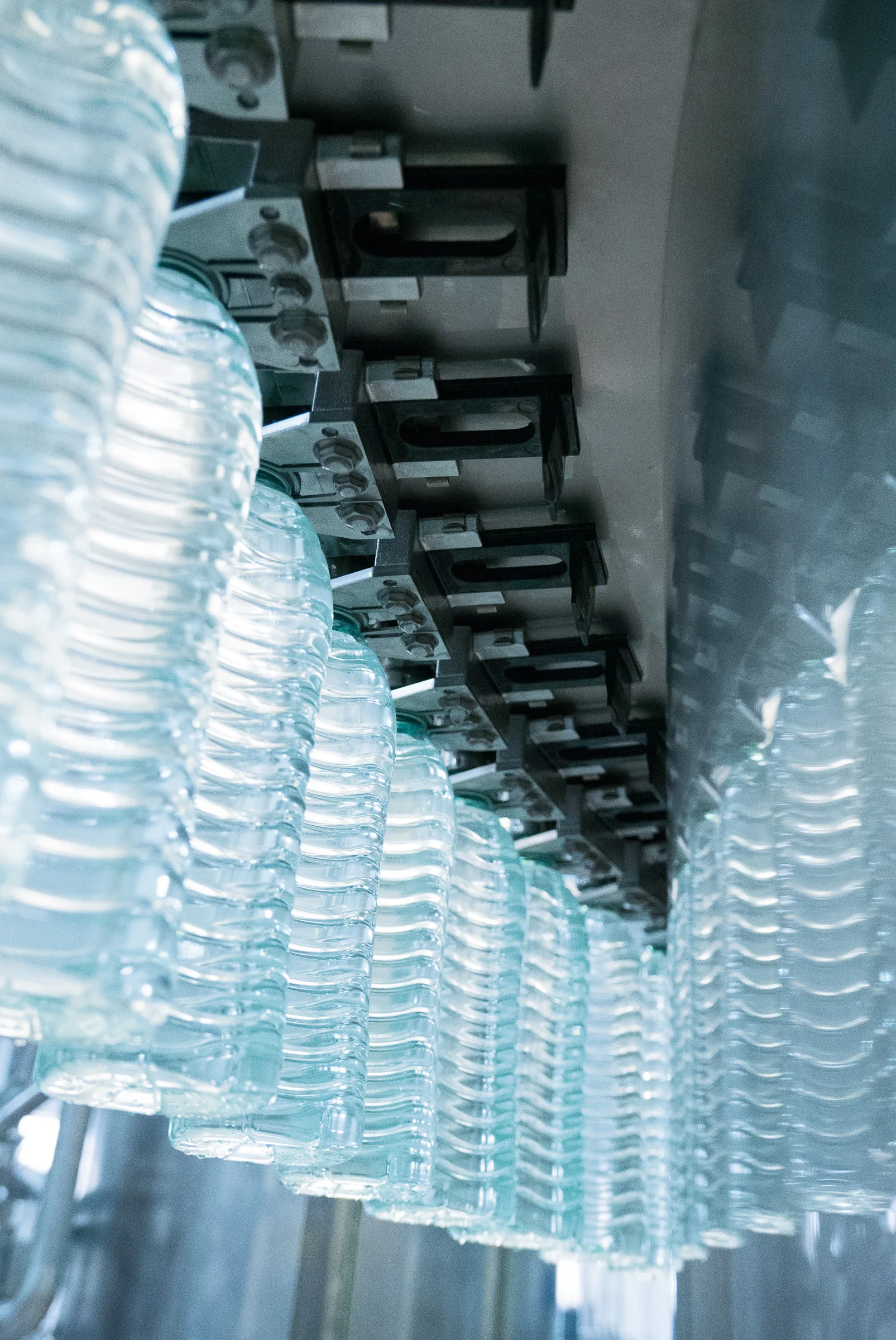
Thanks to a reduction in the number of change parts Butsifal can convert from round to rectangular bottle formats in just 15 minutes.
